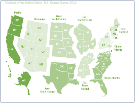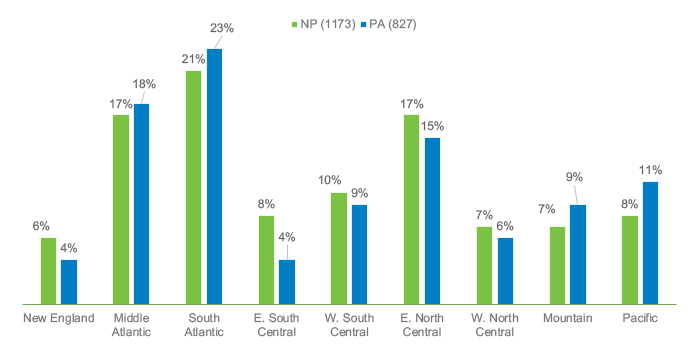2020 NP and PA Salary Survey Research

2,000 NPs/PAs participated in the survey
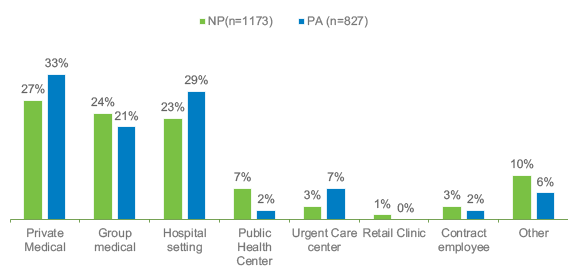
Q1: Which of the following best describes your medical specialty?
Q2: Which of the following best describes your current practice setting?
Respondents have been in the profession for around 14 to 15 years and around 7 years in their current position
— Most are full time employees and female
— There was a higher proportion of male PAs compared to NPs
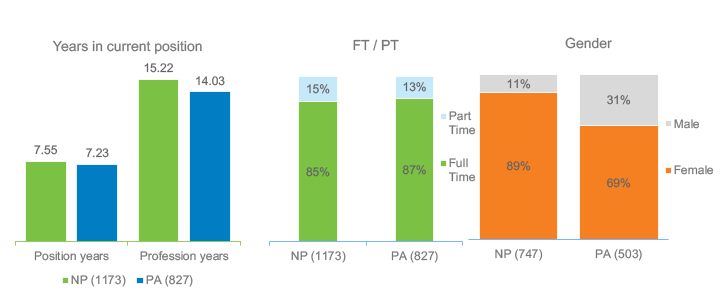
Q4: How many years have you been in the profession?
Q5:How many years have you been in your current position?
Almost 60% are very or extremely satisfied with their current position
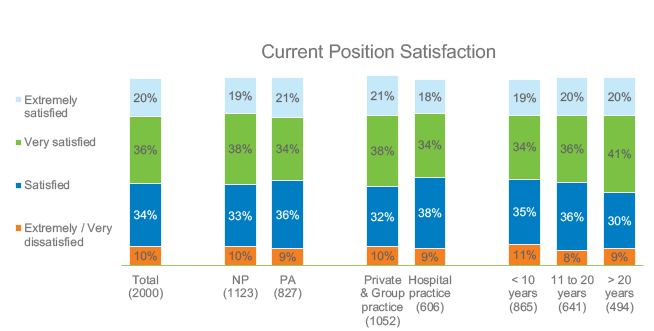
Q6: Overall, for your current position, how would you rate your job satisfaction?
About one third of respondents are considering leaving their current job
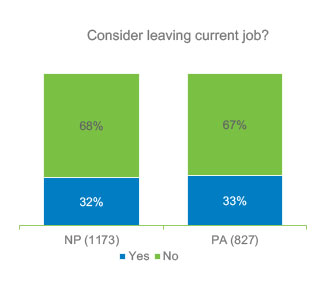
Q6b: Are you considering leaving your current job?
Of the n=652 respondents who are considering leaving their current job, most planned to do so within 7-12 months.
— Compensation was noted as the most common reason

* Respondents who selected other mostly noted "more than 1 year" or "unsure"
* Respondents who selected "Other" mostly noted "retirement", "relocation" and "poor management"
Q6c: "When are you considering leaving your current job?
Q6d: "Why are you considering leaving your current job?
Most have completed at least Master's degree education — A higher proportion of older professionals have BA/BS or PhD/DNP degrees
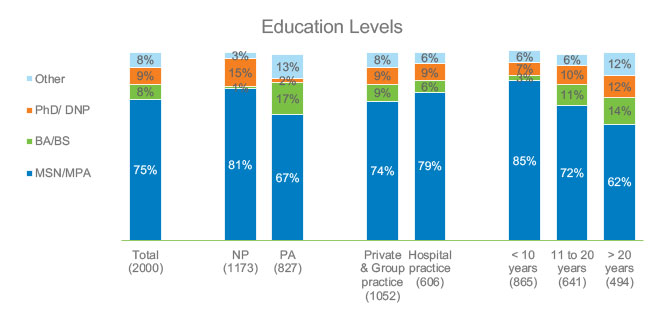
Q17: "What is the highest level of education you've completed?
Almost 60% are between the ages of 30strong> and 49
— PAs tend to be a little younger mix
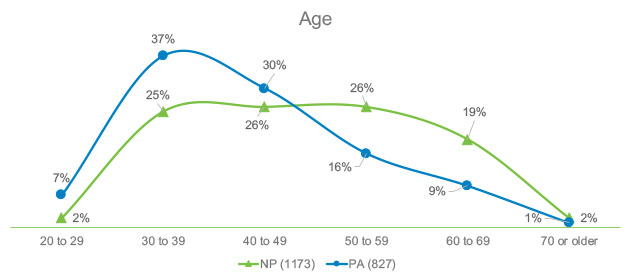
Q18: Which of the following categories best describes your age?
Part time work may skew slightly older
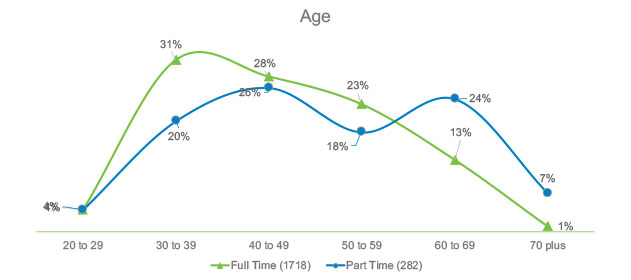
Q16: Would you say you are full-time or part time?
Very few are receiving sign-on bonuses — The median sign-on bonus amount was $5k for the N=229 respondents who indicated receiving one

Q7: When you started in your current position, did you receive a sign-on bonus?
Most NPs/PAs are on salary
—Full time NPs/PAs work an average of 40
hours per week
— Part time NPs/PA work an average of 25 hours per week
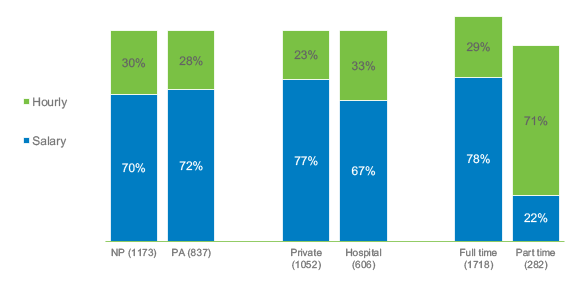
Q10: Are you paid based on the number of hours you work or are you on salary?
Q11: On average, how many hours did you work in a typical week last year?
The salary mix is similar for NPs and PAs
— PAs seemed to have slightly more higher salaried respondents
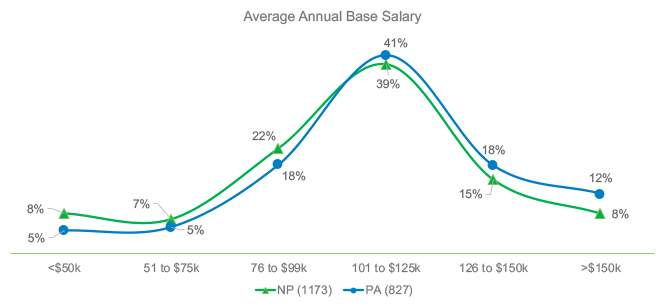
Q12: To the nearest $1,000 approximately how much did you earn last year, not including annual bonuses?
Around 65%of full time NP/PAs were in the $75-$125,000 salary range — Almost half of part time NP/PAs made less than $60,000
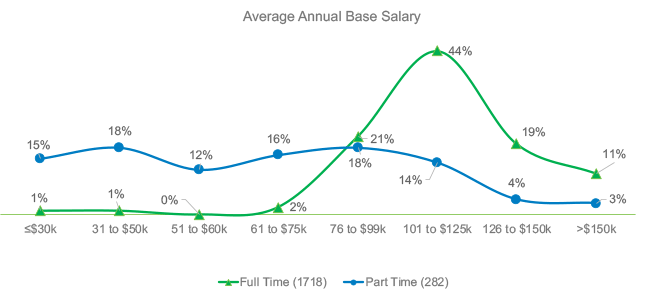
Q12: To the nearest $1,000 approximately how much did you earn last year, not including annual bonuses?
50 to 60% have total compensation in the $75 to $125,000 range — Total compensation mix is similar for NPs and PAs— PAs seemed to have slightly more at the higher compensation levels
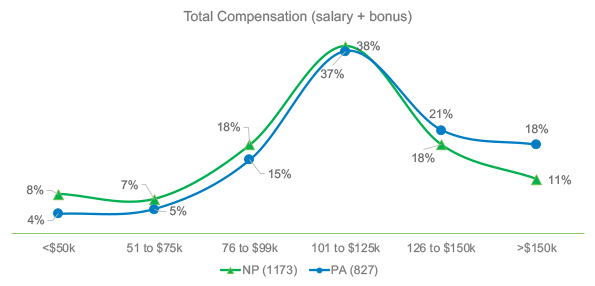
Q12: To the nearest $1,000 approximately how much did you earn last year, not including annual bonuses?
Q13:To the nearest $1,000 how much did you earn as an annual bonus last year?
Most are not receiving annual bonuses — Among those who do, PAs seem to receive slightly higher bonuses — Around 5% are receiving large bonuses, and may represent profit-sharing
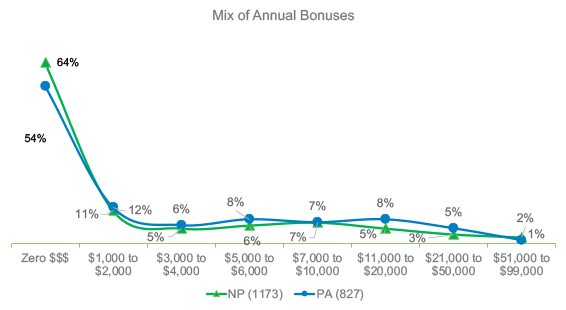
Q13:To the nearest $1,000 how much did you earn as an annual bonus last year?
Almost half earned more in 2019 than 2018
—But part time employees were more likely to receive the same or less

37% are very or extremely satisfied with their current earnings
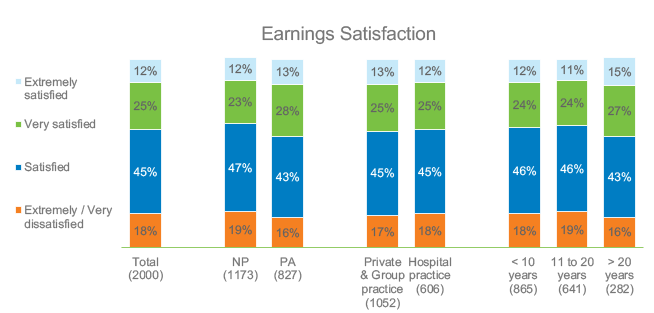
Q15:How satisfied were you with your earnings in 2019?
Respondents were geographically dispersed
